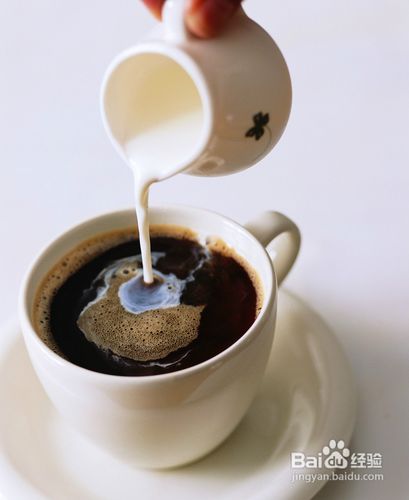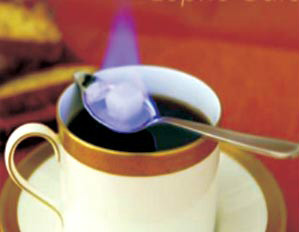Description of the Flavor of Yega Chuefei Adoto Coffee with soft Fruit Acid an introduction to the characteristics of grinding degree
Although the Ethiopian Yirgacheffe coffee is petite, it is gentle and delicate and sweet. As the hometown of coffee, thousands of years of planting history and processing tradition in Ethiopia have created high-quality washed Arabica beans. Light baking has unique sweet aromas of lemon, flowers and honey, soft acidity and citrus flavors, fresh and bright on the palate. No milk or sugar, let the rich texture and unique soft scent of flowers brush your taste buds
Now when it comes to Ethiopian coffee beans, the first reaction of most coffee lovers is Yega Xuefei, and the other reactions may be nothing more than Harald, Native Rose Summer, Lim, Sidamo. And the limelight of Yejia has continued unabated in the past two years, which makes people really impressed with this small type of beans.
With regard to Yejia Xuefei, to be exact, it entered the country a long time ago, but it was called Mocha at that time, and the latter sub-producing area was called Yejia, and then it became popular. In the last three or four years, with more and more detailed grading, Yejia Xuefei has become more and more popular. How popular is it? Yejassefi's coffee trees were planted by European monks (somewhat similar to Belgian monks who advocated planting wheat and brewing beer), and later transferred to farmers or co-operatives. Yega Xuefei is actually built by surrounding coffee communities or cooperatives, including Edido, Hafusha, Hama and Bdon near the Fog Valley.
Most coffee beans are washed with water, but a few peas are deliberately sunburned to enhance their charming fruit aroma and mellow thickness. These mountain villages are foggy, like spring all year round, with a gentle breeze in summer, cool but not hot, rain but not damp, and no cold damage in winter, giving birth to a unique "regional flavor" of citrus and flower fragrance. Caffeine F trees are mostly planted in farmers' own backyards or mixed with other crops in farmland, and the yield per household is not much, which is a typical pastoral coffee. Almost all of the award-winning beans come from the above-mentioned coffee villages and communities.
The so-called "Yega Chuefei" refers to strong aromas of jasmine, lemon or green citric acid, as well as sweet peaches, almonds and tea. The author's tasting experience has only one sentence: "Coffee entrance, flowers in full bloom!" Except for the comfort of the taste buds and olfactory cells in the nasal cavity touched by flowers. In addition to the fragrance of flowers, the delicate mellow thickness is like silk and feels wonderful to the touch. At present, many coffee chemists begin to study the microclimate and soil and water around Yega Xuefei, in order to sum up the planting equation of fine coffee.

Important Notice :
前街咖啡 FrontStreet Coffee has moved to new addredd:
FrontStreet Coffee Address: 315,Donghua East Road,GuangZhou
Tel:020 38364473
- Prev

Sweet and lovely Yega Chefevoca Coffee Flavor description of Grinding Variety characteristics of producing areas
Yega Xuefei uses the oldest sun treatment method, but in 1972, Ethiopia introduced Central and South American water washing technology to improve its quality, which made its jasmine and citrus fragrance clearer and more refined, and became one of the best beans in the world. Superb washing technology played an important role. After the 1970s, it was basically washed by water. However, in the past two years, Yega Snow has been out of order.
- Next

Kenyan Jinchugu Coffee with Fruit Flavor description of Grinding degree introduction of varieties in producing areas
Kenyan coffee is mostly grown at an altitude of 1500m, 2100m, and is harvested twice a year. To ensure that only ripe berries are picked, people must tour the forest about seven times. Kenyan coffee is grown by small farmers. After they harvest the coffee, they first send the fresh coffee beans to the cooperative cleaning station, where the washed and dried coffee is covered with parchment beans.
Related
- Detailed explanation of Jadeite planting Land in Panamanian Jadeite Manor introduction to the grading system of Jadeite competitive bidding, Red bid, Green bid and Rose Summer
- Story of Coffee planting in Brenka region of Costa Rica Stonehenge Manor anaerobic heavy honey treatment of flavor mouth
- What's on the barrel of Blue Mountain Coffee beans?
- Can American coffee also pull flowers? How to use hot American style to pull out a good-looking pattern?
- Can you make a cold extract with coffee beans? What is the right proportion for cold-extracted coffee formula?
- Indonesian PWN Gold Mandrine Coffee Origin Features Flavor How to Chong? Mandolin coffee is American.
- A brief introduction to the flavor characteristics of Brazilian yellow bourbon coffee beans
- What is the effect of different water quality on the flavor of cold-extracted coffee? What kind of water is best for brewing coffee?
- Why do you think of Rose Summer whenever you mention Panamanian coffee?
- Introduction to the characteristics of authentic blue mountain coffee bean producing areas? What is the CIB Coffee Authority in Jamaica?

